
20,000 Butchered in Delhi
25,000 Made “Disappeared” in Punjab
A Community Bruised
A Diaspora Tarnished
STILL WE RISE
A Nation Never Forgets
Remember 1984
On The Langar Hall, the fight for justice is rarely far from our minds. While justice remains elusive and mass-murderers promoted, the community suffers, but not in silence. In this 25th year of the Indian Government-sponsored pogroms, we bear witness to that genocide. We remember not only the lives lost, but call for accountability so that events such as Delhi 1984, Gujarat 2002, and the numerous human rights abuses that occur everyday in the territory that is India are not forgotten. The Indian elite may see the country as a rising economic star, but without political rights, freedoms, and a genuine commitment to justice, slogans such as “Indian Shining” fall on deaf ears.
Here is one such event that inspires us to remember:

Below the fold, see a list of upcoming events in your community. Participate, contribute, stand in solidarity – Remember 1984.
Guest blogged by: Amol Singh
Harinder Singh Jinda and Sukhdev Singh Sukha were hanged to death in Pune Jail for the assassination of General Arun Vaidya, the architect of Operation Blue Star. In the wake of their impending hangings, Sukha and Jinda sent an open letter to the President of India in which they documented their justifications for Sikh militancy and demonstrated how their actions were placed inside a global sphere of justice and necessity.
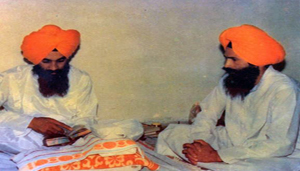 Sukha & Jinda’s letter contextualized Sikh militancy inside of a broader sphere of global defiance against outdated and arbitrary power structures.
Sukha & Jinda’s letter contextualized Sikh militancy inside of a broader sphere of global defiance against outdated and arbitrary power structures.
When nations wake up, even history begins to shiver. During such momentous moments a Banda Bahadur bids farewell to his peace-dwelling and destroys a State of oppression like Sirhind, a Che Guevera turns down a ministership of Cuba, loads a gun on his breast and entrenches against the enemies in the forest of Bolivia, a Nelson Mendela rejects the ideology of apartheid and prefers to spend his life in a dark prison cell.
Yesterday, October 12th, was “Columbus Day” – a day where the United States government honors and celebrates the achievements of Christopher Columbus. For some in the United States, Columbus Day is just another holiday. However, for many individuals and communities – it is a painful reminder that history has forgotten the facts. Christopher Columbus was a hero to some and a villain to others. What his true legacy in the Americas is and to whose expense we celebrate his “discovery” has been called into question. In fact, this notable video below asks us to reconsider why we celebrate Columbus Day and not Indigenous People’s Day.
As you listen to the voices in this video – you may relate to the emotions and words used. As Sikhs, we also won’t allow individuals such as KPS Gill to be named a hero and as humanitarians we won’t perpetuate the heroic notions of Gandhi. Heinous crimes were committed and rights were violated and yet these individuals are still celebrated for their achievements. “With all due respect,” while India [or the U.S.] goes on remembering these so-called heroes, voices in the diaspora ask you to reconsider. It is important that we stand side by side with our sisters and brothers in other communities to pay homage to their history. We must rebuild our global community together.
 Guestblogged by Mewa Singh
Guestblogged by Mewa Singh
This past weekend the North American Sikh Medical and Dental Association (NASMDA) held their 17th annual conference in San Diego, CA. The organization’s website provides a brief description:
Started in the summer of 1992 at Poncos, Pennsylvania, NASMDA has grown to an organization of over 1000 Sikh medical and dental professionals spread across North America. NASMDA strives to provide a platform for Sikh medical and dental professionals to network and interact with each other while promoting the ideals and the mission of Guru Nanak. The members of NASMDA have been actively involved with helping out and supporting various Sikh organizations, young medical students and physicians.[link]
NASMDA provides a platform for Sikhs of various ages to engage in medical exchanges as well as be briefed by various organizations that presented. In all transparency, I made one such presentation, along with other organizations, including Sikh Coalition and more.
Tragedies have a way of uniting people. As did 1984 for Sikhs. In the 25 years since, divisions have again formed in the panth. But a great new initiative in Toronto is asking people to put aside the differences that keep us apart and unite in remembering 1984. [Hat tip: Mapleleaf Sikh]

Coblogged by Reema and Sundari
There is a deafening silence that surrounds Punjabi-Sikh women. Too often, when discussing challenges that some women may be facing, the conversation is shut down and de-legitimized by one or two angry voices. Interwoven into this is the unrelenting identity debate of labeling actions “Punjabi” versus “Sikh” which often distracts us from the true issue at hand.
 For example, recent posts about issues affecting women turned out to be way more controversial to a few commentors than anything in the original post merited. A post on forced marriages drew virulent ire from a few readers for discussing forced marriages under a title that included the word “Sikh.” A post on a change in asylum law which also included “Sikh” in the title drew the same virulent response. Earlier in the year, a post named “The Rise and Fall of Sikh Girls,” was accused of creating unnecessary attention with it’s title.
For example, recent posts about issues affecting women turned out to be way more controversial to a few commentors than anything in the original post merited. A post on forced marriages drew virulent ire from a few readers for discussing forced marriages under a title that included the word “Sikh.” A post on a change in asylum law which also included “Sikh” in the title drew the same virulent response. Earlier in the year, a post named “The Rise and Fall of Sikh Girls,” was accused of creating unnecessary attention with it’s title.
This reaction is reminiscent of the treatment that was meted to Harshinder Kaur by an Indian government official when she attempted to talk about female feticide in Geneva.
She said in her talk at Geneva she had pointed that it was very essential to educate the women and girls of Punjab to make them aware of their rights and to alleviate their sufferings. For this, UN must give aid to needy girls in their education directly as it should reach at grass level where the aid is not reaching. She said he is giving monetary help to 300 needy girls for their education through her own trust. This issue was disliked by a participant P. Srivastava and she [sic] threatened her after she finished her talk and came out of hall and advised her not to visit UN ever again if she has to utter any [words against the] government. She clarified repeatedly that said [sic] she has not uttered anything about government but was worried only about education of poor girls of Punjab. [PunjabNewsline ]
Besides the insult felt by readers at the idea of Sikhs not living as Sikhs should and the fear that a negative image of Sikhs was being portrayed, there is another stream of thought shutting down these conversations that I think needs to be addressed.
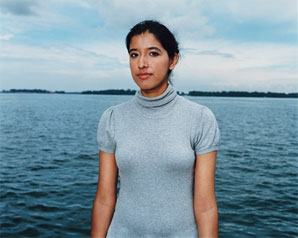 Jasmeet Kaur Sidhu is a 21-year-old aspiring journalist, who currently writes a climate blog for the Toronto Star (she even has The Langar Hall listed as one of her links!). She was recenly chosen as one of the Top 10 College Women for Glamour Magazine (hat tip: Maple Leaf Sikh). The award is usually given out to college students in the US, however, Jasmeet (a Canadian) was picked to be part of the group this year!
Jasmeet Kaur Sidhu is a 21-year-old aspiring journalist, who currently writes a climate blog for the Toronto Star (she even has The Langar Hall listed as one of her links!). She was recenly chosen as one of the Top 10 College Women for Glamour Magazine (hat tip: Maple Leaf Sikh). The award is usually given out to college students in the US, however, Jasmeet (a Canadian) was picked to be part of the group this year!
Jasmeet is the founder of the Peel Environmental Youth Alliance (PEYA), a network of students in the Peel Region working to implement environmental programs in all 220 Peel Region schools. She is currently studying Peace and Conflict Studies at the University of Toronto. Her dream is to become an international journalist.
As a sophomore, Sidhu wrote to the Toronto Star suggesting ways for the paper to improve its coverage. She was promptly asked to join the Community Editorial Board—the youngest member ever—and soon started writing opinion columns for the Star, Canada’s largest newspaper. Sidhu, whose family moved from Malaysia to Canada when she was a baby, has covered everything from HIV/AIDS in Africa to climate change. As the peace and conflict major says, “My mother used to deliver the Star when we first came to Canada. Now her daughter writes for the very same newspaper. Amazing, right?!”
 I was nervous. It was my first day on the job as a crisis hotline volunteer. Although I had just completed weeks of rigorous training on how to handle all types of calls – from anxiety, to depression, domestic abuse, and the dreaded suicide – I was still a little uneasy.
I was nervous. It was my first day on the job as a crisis hotline volunteer. Although I had just completed weeks of rigorous training on how to handle all types of calls – from anxiety, to depression, domestic abuse, and the dreaded suicide – I was still a little uneasy.
I met my mentor for the evening, an elderly white woman who lived in a suburb not too far from me. We made small talk, then she turned to her Danielle Steel novel, and I started thumbing through my training manual – both of us awaiting the next call.
Almost immediately, the phone rang.
“This one’s yours, kid” my mentor said.
I took one deep breath and picked up the phone. Apparently, there hadn’t been one for months, but sure enough, my first call was a suicide. Even though we spent an extensive amount of time covering this topic in training, I instantly froze up.
I placed the caller on speaker and my mentor immediately took over.
What happened over the next 30 minutes will stay etched in my memory for the rest of my life. The caller was severely depressed about a health condition he had been battling since he was a child and – to make a long story short – while on the call, he had the dangerous combination of the means and a motivation to end his life.
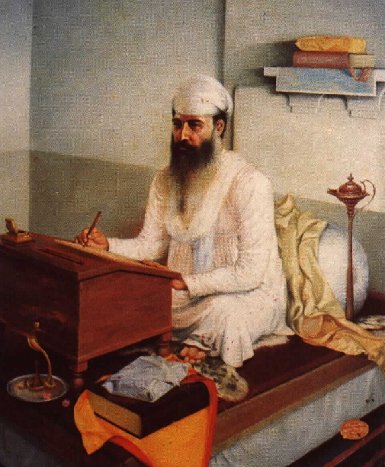 Sikh scholars have a long and proud history from Bhai Gurdas to Giani Ditt Singh and Sardar Kapoor Singh with too many to name in between. Although in more recent times some academics have been seen as controversial in the community, a confident community celebrates academic conferences that provide a valuable forum for those interested to exchange thoughts, discussions, and ideas. This past weekend, one such conference occurred in Berkeley, titled “After 1984” and was an example of the critical importance of scholarly exchange, bringing together such luminaries as Gurharpal Singh, Pal Singh Ahluwalia, Arvindpal Singh Mandair, and many others.
Sikh scholars have a long and proud history from Bhai Gurdas to Giani Ditt Singh and Sardar Kapoor Singh with too many to name in between. Although in more recent times some academics have been seen as controversial in the community, a confident community celebrates academic conferences that provide a valuable forum for those interested to exchange thoughts, discussions, and ideas. This past weekend, one such conference occurred in Berkeley, titled “After 1984” and was an example of the critical importance of scholarly exchange, bringing together such luminaries as Gurharpal Singh, Pal Singh Ahluwalia, Arvindpal Singh Mandair, and many others.
Despite the intellectual brilliance, the meeting point between activism and the academy has always been somewhat uneasy. This weekend allowed such an exchange to occur, but was hardly the focus of the conference. The Jakara Movement is aiming to bridge this gap early next year with its first annual Sikholars: Sikh Graduate Student Conference.
To be held at Stanford University on February 20th, 2010, the organizers are soliciting the community’s help in broadcasting the news of this first conference and calling for proposals. The deadline for abstract submission is NOVEMBER 15, 2009.
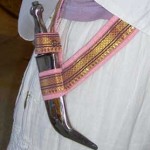 The California legislator has unanimously passed a Kirpan Education Bill (AB 504) through both houses (Assembly & Senate); it is now headed to Governor Schwarzenegger’s desk. This bill, carried by Assemblymember Warren Furutani (D-Long Beach) and other co-sponsors, will only become law if the California Governator signs off on it. AB 504 is a historic bill because it is the only piece of legislation in America that focuses on Sikhs and our kirpan. Furthermore, the bill is being pushed through the law-making process in California-a state with the oldest and largest number of Sikhs in America.
The California legislator has unanimously passed a Kirpan Education Bill (AB 504) through both houses (Assembly & Senate); it is now headed to Governor Schwarzenegger’s desk. This bill, carried by Assemblymember Warren Furutani (D-Long Beach) and other co-sponsors, will only become law if the California Governator signs off on it. AB 504 is a historic bill because it is the only piece of legislation in America that focuses on Sikhs and our kirpan. Furthermore, the bill is being pushed through the law-making process in California-a state with the oldest and largest number of Sikhs in America.
The Kirpan Education Bill (AB 504) requires that all California law enforcement officers be trained on Sikhs and our kirpan. This training would teach California law enforcement officers about Sikhs and the importance of our religiously mandated articles of faith. Sikhs wearing a kirpan are often disrespectfully approached by law enforcement officers and arrested for concealed weapons charges. Often law enforcement officers will pull Sikhs over for minor traffic violations or safety concerns and as soon as officers see the kirpan the situation is escalated into a criminal offense; although the Sikh was only practicing his/her faith. These officers are unaware that the kirpan is a religious mandated article of faith-a gift from our Guru that we wear with care, respect, and love.
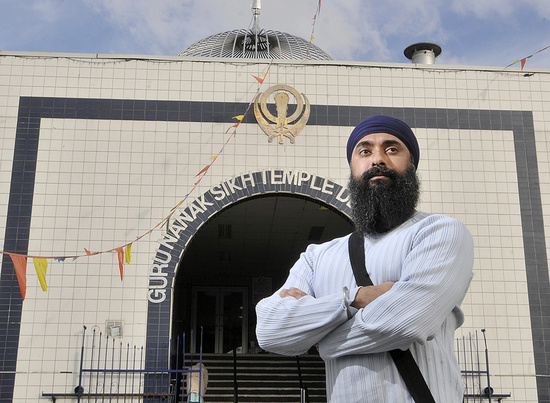 Many of the elements that make up this article have been featured in the Langar Hall in the past – Ranj Dhaliwal’s book Daaku about the lifestyle of Punjabi gangsters, thugs, and drug-dealers in BC during the late 1990s and early 2000s that cost the lives of 100+ youth in our community, Mani Amar’s film “A Warrior’s Religion” that documents the real life stories and effects of the peak of the violence, and finally to the various twists and turns that is British Columbia’s Sikh politics – from new coalitions to disputed certifications.
Many of the elements that make up this article have been featured in the Langar Hall in the past – Ranj Dhaliwal’s book Daaku about the lifestyle of Punjabi gangsters, thugs, and drug-dealers in BC during the late 1990s and early 2000s that cost the lives of 100+ youth in our community, Mani Amar’s film “A Warrior’s Religion” that documents the real life stories and effects of the peak of the violence, and finally to the various twists and turns that is British Columbia’s Sikh politics – from new coalitions to disputed certifications.
However, a recent article in The Walrus, author Timothy Taylor brings all these elements together in his piece, titled “Showdown on Scott Road.”
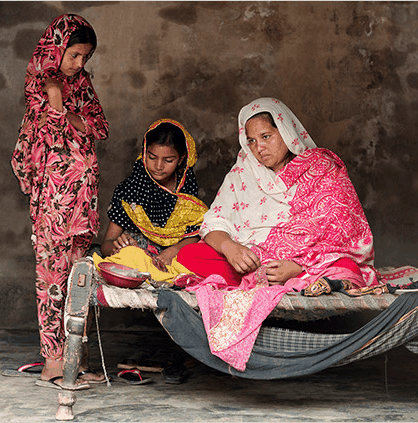 The issue of forced marriages and domestic violence clearly struck a chord with many of the TLH readers. But somewhere deep in the comments over titles, or whether these are Sikh or Punjabi issues, or whether or not we should air our “dirty laundry” in the first place – I feel some of the issues themselves got lost. In formulating my own thoughts on the topic and trying to build a broader perspective on women’s issues in general, I came across a fascinating article in last week’s New York Times Magazine called “Saving the World’s Women.” The premise of the article is that many of the countries that are disproportionately poverty-stricken and absorbed in fundamentalism and chaos, are also those same countries where women are the least educated and most marginalized. And by focusing (and investing) on women and girls, a dramatic impact can be made to fight global poverty and extremism.
The issue of forced marriages and domestic violence clearly struck a chord with many of the TLH readers. But somewhere deep in the comments over titles, or whether these are Sikh or Punjabi issues, or whether or not we should air our “dirty laundry” in the first place – I feel some of the issues themselves got lost. In formulating my own thoughts on the topic and trying to build a broader perspective on women’s issues in general, I came across a fascinating article in last week’s New York Times Magazine called “Saving the World’s Women.” The premise of the article is that many of the countries that are disproportionately poverty-stricken and absorbed in fundamentalism and chaos, are also those same countries where women are the least educated and most marginalized. And by focusing (and investing) on women and girls, a dramatic impact can be made to fight global poverty and extremism.
Take the example of Saima Muhammad (pictured above) from Pakistan. Saima didn’t have a rupee to her name, was routinely beaten by her unemployed husband and other family members, and had to send her kids away due to lack of food and other basics. Even her mother-in-law contributed to her troubles by encouraging her son to marry again because Saima was only giving birth to girls. However, after Saima signed up with the Kashf Foundation, a Pakistani microfinance organization, things turned around.
Saima took out a $65 loan and used the money to buy beads and cloth, which she transformed into beautiful embroidery that she then sold to merchants in the markets of Lahore. She used the profit to buy more beads and cloth, and soon she had an embroidery business and was earning a solid income — the only one in her household to do so. Saima took her elder daughter back from the aunt and began paying off her husband’s debt.
…Saima became the tycoon of the neighborhood, and she was able to pay off her husband’s entire debt, keep her daughters in school, renovate the house, connect running water and buy a television.
As the economics of Saima’s situation changed, so did the relationship with her family. She now has a better relationship with her family and has earned their respect. It is unfortunate that this is what it took for Saima, and many will never have the golden opportunity Saima had, but it does send a clear message – that although it may seem impossible to break down cultural barriers, economics can change the game quickly.
 The issue of the loss of Sikh heritage sites and documents has long been lamented by many Sikhs. In fact, one of my fellow langa(w)riters blogged about the need to ‘preserve what history we have left.’ One group has been silently seeking to remedy this problem – the Nanakshahi Trust.
The issue of the loss of Sikh heritage sites and documents has long been lamented by many Sikhs. In fact, one of my fellow langa(w)riters blogged about the need to ‘preserve what history we have left.’ One group has been silently seeking to remedy this problem – the Nanakshahi Trust.
Quietly working on a massive project for over the past 6 years, the Nanakshahi Trust, along with the Sikh Research Institute, have inaugurated the Panjabi Digital Library:
For the first time ever a searchable collection of millions of rare pages on the Sikhs and the region of Panjab has been made available. Panjab Digital Library (PDL) will include texts of manuscripts, books, magazines, newspapers and photographs and will be available to anyone with Internet access at www.PanjabDigiLib.org. This launch was made possible in part by The Nanakshahi Trust and the Sikh Research Institute (SikhRI).
In today’s society, digitization is the key to immortality. While Sikhs have to be equally wary of those that claim Sikhs have no history as well as those that come up with their own ludicrous interpretations, a project such as the Panjab Digital Library allows Sikhs to access their own primary and secondary sources. Nanakshahi Trust has done a tremendous boon to Sikhs, researchers, and all that are interested in the preservation of history and man (and woman’s) historical past.
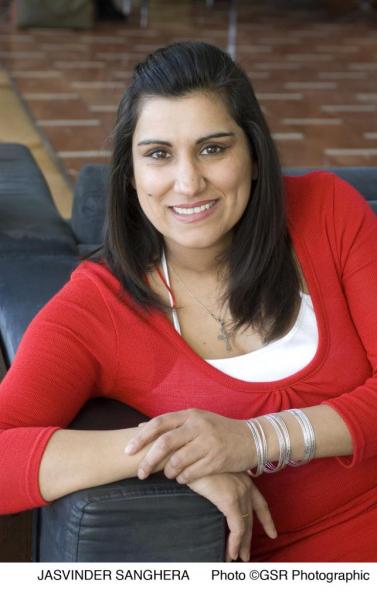 The issue of marriage is complex and has as many circumstances as there are combinations of people in the world. Recently, a langa(r)eader wrote:
The issue of marriage is complex and has as many circumstances as there are combinations of people in the world. Recently, a langa(r)eader wrote:
Hi I as just wonderingif you are familiar at all with a sikh girl marrying a non sikh guy who is caucasian. Her parents banished her forever about 7 years ago and then finally contacted about 2 years ago but are still hung up on the fact. Just wondering what we can do to help them get over this faster. [received email]
Well I can’t make the parents ‘get over this faster’, but I can raise some observations and thoughts on marriage.
 The US Congress is on their August recess and most have returned to their home constituencies. The atmosphere throughout the country is becoming increasingly polarized over the issue of healthcare. From Palin’s stupidity in labeling Obama’s plans “downright evil” (I almost don’t know what is worse – her attempt to ‘inflame’ sections of the public through such incendiary language or the fact that she is still unaware that there is NO “Obama plan” – Obama has left the process to the branch of the government that is suppose to make laws – the Congressional legislative branch) to Obama’s call for sanity and an end to “outlandish” claims against the process, the partisan hackery has already begun.
The US Congress is on their August recess and most have returned to their home constituencies. The atmosphere throughout the country is becoming increasingly polarized over the issue of healthcare. From Palin’s stupidity in labeling Obama’s plans “downright evil” (I almost don’t know what is worse – her attempt to ‘inflame’ sections of the public through such incendiary language or the fact that she is still unaware that there is NO “Obama plan” – Obama has left the process to the branch of the government that is suppose to make laws – the Congressional legislative branch) to Obama’s call for sanity and an end to “outlandish” claims against the process, the partisan hackery has already begun.
So now I open up a discussion here in The Langar Hall. What we are going to attempt to do is what, unfortunately, is not happening in the rest of the country – an honest discussion. Instead, we have had partisan hacks yelling “Socialism” and others yelling “Fascism” with divisions based on well-known party allegiances, rather than real interests. Will we be successful in The Langar Hall?
Healthcare has been discussed before, but as the topic is taking center stage in the United States, it is an opportunity to use our community capital. In the United States, Sikhs are far over-represented in health services. From doctors to nurses to physical therapists and everything else, we occupy a broad expanse of the health care sector. What are our opinions on health care? What are the opinions of our brothers and sisters from UK, Canada, India and other countries, which have very different systems?
We are seeing how political power is harnessed and used by the Sikh community as we engage in more civic engagement projects initiated by our own Sikh institutions. Civic engagement is not new to our community per se. The first Asian congressman was a Sikh-Dalip Singh Saund. As a child I remember local Sikh business leaders and professionals brought governmental representatives to our Gurudwaras to give speeches. These politicians were later recogonized with a saroopa and more opportunities to address their Sikh constituency at mela award ceremonies that seemed to last longer than the actual musical performances. Often these politicans were talking in English to a community that primarily understood Punjabi. It seemed more like an opportunity for the local Sikh leaders to secure their political connections for their own business interests than really an opportunity to hold politicians accountable to meeting their Sikh constituency’s needs. These political connections were often rooted in the capacity of the Sikh “leaders” to donate money than actually represent the needs of the Sikh community in a sustained way. I don’t want to paint this picture with too broad of a brush stroke because there are some Sikh business leaders, professionals, and activists who did build political power in our community to meet our needs; but they are definitely a minority. These Sikhs pushed along despite all the obstacles of being immigrants, They should serve as inspiration for the new generation of Sikh activists. This new generation needs to remember that we are not breaking as much untouched ground as we sometimes think we are doing. Our work should attempt to build off of those who came before us.
Coblogged by Camille and Reema
This week is Energy and Environment week. The environment has been front page news for a while now and one Sikh group is getting involved. 
Recently, SCORE launched a new initiative called EcoSikh, a project driven towards promoting environmentalism and environmental stewardship particularly in Punjab, but in the Sikh community at large. EcoSikh is the Sikh contribution to a larger project between the UNDP and the Alliance for Religions and Conservation (ARC, a UK-based NGO). UNDP and ARC are funding many religious communities to develop plans and ideas to integrate environmental consciousness into their members’ communities and personal behavior.
The program plans to work through 5 areas it has identified as: assets (using existing skills, time, resources for environmental projects), media/advocacy, eco-twinning (developing relationships of mutual benefit between various Sikh communities by sharing environmental ideas), celebration, and education. Each of the 5 program areas has been rooted in Sikh theology as a reminder of the historic import and connection with the environment in the Guru’s bani. A draft of the plan can be found here.
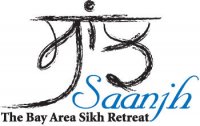
“Saanjh”-the annual Bay Area Sikh Retreat is taking place Thursday, August 27th-Sunday, August 30th at the Monte Toyon campsite near Santa Cruz, California. Share your experiences and connect with other Sikhs through a Guru-inspired sangat. This year’s theme is “Developing a Panthic Vision Towards 2084”. In 2009 we commemorate the 25th anniversary of 1984. When we fast-forward to its centennial where do we want to be as a Panth-a Sikh community? What is our collective vision for 2084? How do we need to develop as individuals and a community in order to heal ourselves and find solutions to our communal problems? Come share your opinions and connect with other concerned Sikhs through a collaborative approach to finding solutions. You will be inspired by diwans, conversations, debates, and laughter. Register by August 3rd to avoid late fees. There is a separate fee schedule for students and professionals. For more information visit www.saanjh.org. If you have any questions, e-mail sawal-jawab@saanjh.org.
As way of background, “Saanjh” began last year by a group of Bay Area Sikhs who were inspired by their personal experiences of engaging with sangats world-wide. They felt there was a need in California to “retreat” from our daily routines into a relaxed space where we could be inspired by our Guru. With this inspiration we could go back to our “real” lives as better engaged Sikhs spiritually, socially, and politically. The focus of the retreat is on learning from our experiences as diverse Sikhs in order to develop a collective vision for our community.
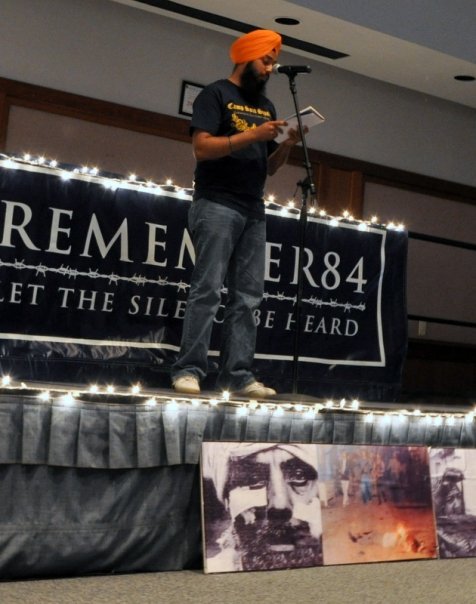 This past Saturday night, twenty artists from all over the country took to the mic in front of a packed and energetic crowd at the University of Maryland for Lahir 2009. It was a powerful evening of remembrance and reflection to commemorate the 25th anniversary of the 1984 Sikh Holocaust, organized by the DC Sikh Youth.
This past Saturday night, twenty artists from all over the country took to the mic in front of a packed and energetic crowd at the University of Maryland for Lahir 2009. It was a powerful evening of remembrance and reflection to commemorate the 25th anniversary of the 1984 Sikh Holocaust, organized by the DC Sikh Youth.
It was amazing to see teenagers, college students, young professionals, and even a few parents take to the stage and share their thoughts and reflections about 1984, human rights, and justice. Not only did the performers span across generations, but the performances themselves ranged in art form from musical pieces, poetry, and spoken word.
For me, it was fascinating to see how different each of the performers connected with 1984 – early in the show one artist eloquently recited an excerpt from Sirdar Kapur Singh’s 1966 speech to parliament, another tied environmental issues and water rights to 1984, while others shared personal accounts, poetry, dharmik geets, and dhadi vaaran. Regardless of how different each artist connected to 1984…the connection itself was strong…and watching that unfold on stage was absolutely breathtaking!
The evening concluded with G.N.E performing some of their recent tracks in front of their hometown audience. Seeing uncles and aunties “waving from side to side” was definitely a sight to remember.
 The list of 1984-inspired Sikh propositions continue to grow. In the past, I have mentioned more than my fair share and last week my fellow langa(w)r-iter added one more. Here is another great proposal.
The list of 1984-inspired Sikh propositions continue to grow. In the past, I have mentioned more than my fair share and last week my fellow langa(w)r-iter added one more. Here is another great proposal.
This year marks the the creation of two great scholarships by the Jakara Movement. One aimed at high schoolers: “Bhai Amrik Singh Scholarship for Excellence” and the other at junior/community college transfers: “Bibi Upkar Kaur Scholarship for Excellence.” In this 25th year of commemoration of the 3rd Sikh Genocide (Ghallughara), these are the institutions that will last. The Scholarships provide national recognition and financial support for students, who exhibit outstanding academic strength as well as exceptional service to Sikhs and the American community at large.
The organizers describe them:
In honor of two pioneers of Sikh activism, Bibi Upkar Kaur and Bhai Amrik Singh’s exemplary dedication to the Sikh community are illustrated by their association with Sikh student organizations. Both were presidents of their respective Sikh student organizations and lived by their convictions of striving for excellence through dedication and perseverance in all aspects of their lives. Both applied this conviction to their educational pursuits, being accomplished students, and supportive of other students in pursuing academic excellence and achievement as well. They believed that as Sikhs, students had the obligation to not only excel in education, but also to carry the responsibility of being of service to the community. Bibi Upkar Kaur and Bhai Amrik Singh gave their lives for this very cause. Hence, these distinguished awards reflects Bibi Upkar Kaur and Bhai Amrik Singh’s legacies of commitment to academic excellence and service to the Sikh community as well as the greater community at large.

